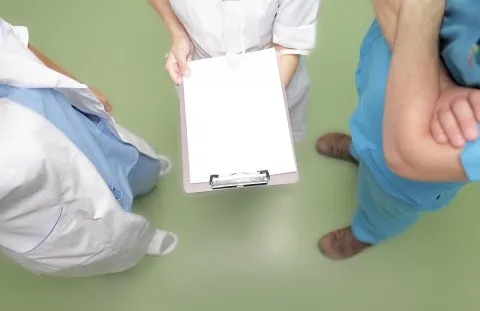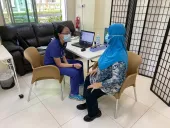
Singapore healthcare professionals to enjoy 5-10% pay hikes
Those in the diagnostics and devices sectors can enjoy the highest wage increase.
Singapore’s healthcare industry can expect to see between 5-10% increases in salary with high-performing candidates within the biomedical sector receiving a possible 15% when they change employers, according to a report by HR services provider Ranstad.
The firm added how the highest pay rise can be expected from the diagnostic and devices sectors, whilst salary spikes in the pharmaceutical industry only occurring when there is a new entrant to the market.
“We foresee that salaries could rise for experienced staff once the Chinese pharmaceutical companies enter Singapore and start competing with local firms for top talent,” it further added.
Also read: Healthcare boosted Singapore's capital markets in 2018
Ranstad outlined in its market outlook that Singapore’s biomedical industry is a major contributor to the country’s manufacturing scene, with big pharma and global biologics companies setting up shop in the Lion City to manufacture high-quality medicines that cater to the needs of the global patient population.
It highlighted how eight of the top 10 pharmaceutical companies have a presence in Singapore, therefore boosting the country’s growth in manufacturing and commercial activities. It pointed out how the biomanufacturing sector employs an estimated 6,000 highly skilled workers.
“They are responsible for the increase in biomedical manufacturing output by 11.5% in October 2018 compared to a year ago,” Ranstad commented. “This accounted for the 15.8% expansion from higher production of pharmaceuticals and biologics, as well as a 2.9% growth in the medical technology segment to meet export demand from the US.”
Also read: Medical inflation in Singapore to hit 10% in 2019
Singapore’s national healthcare spending is estimated to hit $13b by 2020, pressuring the government and companies to better manage healthcare costs for the longer-term, as hospital beds reach their full occupancy and resources for healthcare institutions are highly stretched.
The report noted that one possible avenue to cut back accumulated late-stage costs would be to enhance early-intervention. In order for this to succeed, healthcare professionals will need newer and better diagnostic kits to accurately identify diseases as early as possible so that treatment and management can start promptly.
“Early detection also allows patients to make gradual changes to their lifestyle to improve their quality of life which can help with the recovery process,” Ranstad explained. “Total national healthcare expenditure can also be further reduced as fewer resources will be required.”
Also read: 7 in 10 Singapore women worry about affordable healthcare after retirement
From an employment perspective, the industry is looking to hire PhDs and Master’s degree holders to work as medical science liaison (MSL) officers to better facilitate the industry’s transition to a more high-skill job market in Singapore. “MSLs are the new sales representatives and represent a sort of techno-commercial role,” Ranstad noted. “Instead of focusing on meeting commercial targets, they engage with healthcare professionals at a more technical level.”
Such roles are said to not just be highly valued by healthcare companies but also by healthcare professionals given that physicians will have the opportunity to upskill and educate themselves on the latest medical advancements which in turn will benefit patient understanding of the options available to them.
“Next year we will likely see a spike in demand for such techno-commercial roles, specifically MSLs and application specialists across all three verticals,” Ranstad added. The report also noted that the starting salaries for MSLs sit at $5,000 which is significantly higher compared to a traditional sales representative’s salary which sits between $2,700 and $3,000.













 Advertise
Advertise













